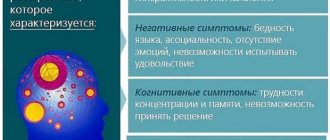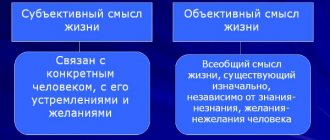Signs
I suggest looking at the signs that will help you determine that you are deceiving yourself. Human psychology is such that many processes occur on a subconscious level. It is unlikely that your internal dialogue about the need to lie takes place consciously.
Empty promises
A person who promises something and then does not do it is not always simply irresponsible. Sometimes she just doesn’t know how to refuse. And out of fear of losing the favor of others, or for some other reasons, he agrees to fulfill the request. Thinking that later, in a different mood, you will suddenly be able to “force” yourself.
It’s difficult to admit that you don’t want to, or that there is no sympathy at all, or that such a task is beyond your capabilities.
Otherwise, you will have to admit that you are not so good, kind, or omnipotent. After all, such people are socially disapproved. You must always run headlong to help.
Do you know, for example, the stereotype that if you feel bad, you can call a friend in the middle of the night? He will always listen and help. And if he’s not a real friend, then he won’t even pick up the phone, he’s such an egoist.
It’s as if an illusion appears that a person who, say, after a hard day of work is resting and has his tenth dream, should experience happiness from the call. Instantly become combat ready and take on your comrade's problems.
Therefore, if you often hear in feedback that you don’t keep your promises, think about what this means to you? What are you afraid to admit to yourself and other people?
Excessive daydreaming
Dreaming is very useful and important. Danger arises when fantasy replaces reality. Something then happens in her not as she would like, so there is a desire to run away.
Dissatisfaction in the present pushes us to invent an ideal world in which everything is the way we want it.
Therefore, if you notice that you often find yourself daydreaming about a wonderful future, try to stop and think about what steps you can take to achieve what you want, rather than just dreaming about it.
Addictions
Any kind of addiction also has a chance to appear due to the inability to admit something to oneself. Then alcohol or drugs, computer games become a guide to a more comfortable world.
By the way, the first step towards recovery from any addiction is admitting that there is a problem. Until a person realizes that he is really already addicted and needs help, no one can “cure” him. The effect may be temporary, because there is no awareness.
Responsibility
Some people find it easier to blame others for their failures, or some weather conditions in general. But I am unable to take responsibility.
And if you always have someone else to blame but you, think about how much more difficult you make your life. Do you know why it’s more difficult? Because only by admitting one’s own mistakes does a person gain experience, he understands how he should stand in the future, or, conversely, what he shouldn’t do so as not to repeat what he did.
And those who seek to avoid responsibility risk constantly stepping on the same rake, not realizing how to change the situation.
Agree, such a vicious circle can lead to depression. After all, everything is always bad, and why is not clear. And what to do too. All that remains is to talk about the unfairly structured world.
By the way, self-justification also applies here. Of course, it can be difficult to admit that you made a mistake, which is why you have to grab any opportunity that will justify and hide your guilt and imperfection.
Definition of Honesty
After reading several definitions in different dictionaries, I summarized for myself what self-honesty is. This:
- the ability to take responsibility for one’s actions, not to justify one’s actions, but to look for opportunities to change them;
- the ability to evaluate one’s actions and actions by the same measure as the actions of other people;
- live consciously;
- be, not seem to be. Be who you really are. Be who the Creator created you to be.
As it turns out, all these definitions are not yet answers. But only stages for further research of the issue. I invite readers to get to know them better.
What to do?
The human psyche is a very complex element, but truly unique. To protect the psychological and even physical health of the individual, she uses defense mechanisms. Which really do their job very well. But sometimes situations arise when they do more harm than help. Because they form a certain style of behavior, which interferes with being mobile. That is, for example, in any situation he acts in the same way and is not able to gain or appropriate new experience.
Thinking traps appear, falling into which a person seems to get rid of tension, but at the same time does not realize his needs.
Anyone who wants change must step out of their comfort zone and do something that frightens or causes resistance. This is the only way to advance in development.
Using the words "if only"
Now, if I had a car, I would earn more money. If I had different parents, I would have achieved more in life. Are there any familiar expressions?
By the way, a good exercise will work if you write a list of similar formulations, and then paraphrase them side by side.
For example, I will earn more money without a car, after which I will be able to buy one. I will achieve more in this life, despite the fact that my childhood was terrible.
When you're finished, start planning, that is, write down step-by-step actions that will help achieve the translation of the formulation into reality.
Limitations are only in our heads. If you allow yourself to desire more, you will be able to achieve it. You shouldn’t waste your energy looking for excuses; it’s better to direct it into action.
Postponing things until tomorrow
Oh, who hasn’t promised himself to start exercising on Monday, quit smoking and start studying? Only then some unforeseen circumstances arose and we had to postpone what was planned until next Monday. Right?
With this trap, in principle, everything is simple. It is enough just to start implementing it at the same moment as you thought. In theory, in practice, of course, it is more difficult. Especially if you are used to leaving ideas unrealized.
Do you want to lose excess weight? Then right now you should put the bun aside and instead do at least 5 push-ups. If you can't do it, then at least face the truth, are you really motivated to lose weight? What secondary benefit do you get from being overweight?
Yes, every illness, addiction and even bad luck has a secondary benefit. Otherwise it wouldn't exist.
For example, excess weight allows you to remain in the shadows and not experience tension when communicating with the opposite sex. Protects against harassment. Or vice versa, it attracts attention. Allows you to receive care and sympathy. Everyone has different reasons. And it is important to discover your true self, no matter how unpleasant it may seem to realize.
Acceptance of feelings
Anyone who believes that anger is a “bad” feeling and tries to ignore it is rejecting part of their own personality.
Every emotion has a function that it performs. And if it arose, it means there are good reasons for it. Sometimes the most unpleasant feelings can save a life. Disgust is unpleasant, sometimes accompanied by nausea and vomiting. But if it weren’t for him, we would continue to communicate with toxic people who destroy us. They would eat missing food, risking poisoning and so on.
So learn to decipher the messages they convey by their appearance. Be aware of them, don't control them. Only then will you gain knowledge about what you love and what you don’t. What makes you happy and what makes you sad.
Questions for yourself
These are excellent questions, no others are needed. These are enough to try to unravel the tangles of problematic situations that cause dissatisfaction.
- And in fact? - This is true? Is it so?
— Why?
- For what? Why am I doing this? Why do I need it? Why am I sick? Why do I stay overweight? Why am I sitting at home alone? Why do I earn little? For what?
- AND?
— So what am I going to do about it?
— What can I do to make myself feel better in this situation?
Ideally, get into the habit of always being honest with yourself and others.
Learn not to lie, not to brag, not to wishful thinking.
Don't whine, but don't sugarcoat either.
Saying “I’m fine”, “I’m doing great” is normal. And going into non-existent (exaggerated) details is already fraught with danger for oneself.
And it is better not to say about others behind their backs what you would not say to their face.
This all saves a lot of energy on psychoprotection, hiding dissonances and covering tracks.
When you are honest with yourself, you see the front of the work.
It becomes clear to you WHAT to work ON. A light in the end of a tunnel. You don't spin a bunch of lies around the real reason. You don’t need to peel away layers like cabbage to get to the stalk—to the root and essence of the situation, the problem.
Honesty gives us strength.
Leo Tolstoy tried to be honest with himself. True, it would be nice to put the question “And?” next to each such item in your diary.
Want more?
Do you want all the most valuable things from me? “100 keys to understanding where our energy and time flow” - download my checklist for free!
A powerful shake-up in just 5 days. I invite you to my live practical intensive
“Order in the head - order in life” - the most important and basic topics for working through discontent, problems and sources of energy leakage. 5 days for a tangible life change!
Receive daily short posts on the topic of self-development and personal effectiveness, life improvement:
Subscribe to my INSTAGRAM account!
VKontakte group
Telegram
Human and nature
Nature loves us, her children.
Nature itself has created conditions for human harmonization. For example, a waterfall is a metaphor for flowing energy. There are many such waterfalls around us. Our task is to fill ourselves from them. However, for this we must approach the waterfall prepared. If we are not ready to perceive new knowledge, then the energy flow will have a detrimental rather than beneficial effect on us. It is necessary to be a fulfilled person, to transform knowledge within oneself, to have the desire to give one’s experience to society, not just in the form of individual good deeds, but in the form of a flow of vital, positive energy.
Knowledge and spirit
Knowledge is the eyes of the spirit. A person rises above the situation, above the system, he can see all the problems, and he knows how to solve emerging problems, he knows the right solution.
Spiritual man
- Realizes his responsibility.
- He begins to build his own life and knows how to do it.
- Sees his path and destiny.
- Through his deeds he reveals creativity.
- Able to control the “soul”, which is prone to essential movements and is afraid of the new.
- Sees and hears the signs of the Path.
A PARABLE about honesty
“Once upon a time, a wise emperor ruled a certain country for a long time. The time has come, he grew old and decided to announce his heir. Everyone expected it to be one of his children or followers. But the emperor came up with something else. He ordered to gather in the palace all, without exception, the young men living in the country. And he told them the following: “I need to appoint the next ruler. And I decided that I would choose this person from among you.” Everyone who was in the palace hall at that moment fell into bewilderment. The elderly ruler continued: “I will give everyone a seed. You will plant it, tend it for a year, and then return to the palace with the harvest. Whoever has the best plant will become my successor!” The young man, whose name was Ling, also received his seed. When he told his mother about the emperor's task, she helped him put him away. Then the young man carefully raised it and checked every morning to see if small shoots had appeared. Time passed. When they met, the other youths boasted to Lingu about their achievements. But nothing appeared in Ling’s pot. He began to consider himself insignificant because everyone else was only boasting about their harvest. Six months passed unnoticed, but Ling still had no results. He blamed himself for everything, that he himself had ruined the precious plant. And now the deadline set by the ruler has ended. As agreed, all the young men brought the plants they had grown to the palace. And Ling did not want to go there, but his loving mother said that he must be honest and be able to admit defeat... When Ling appeared in the palace, he saw a huge variety of different plants that other young men had brought. When the emperor saw all this, he said: “You all deserve praise! Your harvest is simply wonderful!” Ling tried to be inconspicuous during the emperor's speech. But the emperor noticed his empty pot and called the young man forward. Everyone started laughing at Ling when they saw that there was nothing in the pot except soil. And the ruler suddenly said: “Here is my successor!” You all remember that, having received the seed, you had to return to the palace with the results of your labors in a year. But none of you knew that those seeds could not germinate, they were spoiled, I pre-cooked them. But you, besides Ling, still bore the fruits of your labors. You have replaced the seed you received from me. And Ling is the only one whose honesty I have no doubt about. Therefore, he will replace me and become your emperor!”
(from the Collection “31 positive PARABLES that change your life for the better”)
Author: Victoria Saiko
Non-classical total science
Traditional science has exhausted the possibilities of the dominant trend of narrow specialization of knowledge, and its methodological apparatus has turned out to be untenable.
Science is faced with a dilemma: to consciously, purposefully and consistently study the elements of the World (in particular, life and man), or to build knowledge of a different order, based on the study of the universe as a Totality - the creation of Non-Classical Total Science (NTS). How does the scientific approach of NTN differ from traditional scientific research? NTN proposes a holistic approach to understanding and developing the methodology of interaction, which consists of developing new methodological tools for cognition and transformation of reality, opening up the possibilities of conscious cooperation. Non-classical total science raises the question of the need and possibilities of a scientific approach in explaining human spirituality. The means of spiritual comprehension of the world are theory, practice, method and methodology with the help of which a person organizes his life. The totality of nonlinear features of human thinking cannot be described using classical ontological and logical paradigms. The new reality requires a new ontology and logic of thinking. The philosophy of Totality is based on ontognoseology and total-causal methodology. The goal of the ontognoseological process is the realization of life, and the essence is comprehension.
The disclosure and comprehension of Totality brings scientific knowledge to the ultimate foundations in the study of the World in general, and the human world in particular. These are not limits in the mathematical sense, and not the limits voiced in the new philosophy of globalism by Toffler, Fukuyama or Huntington. In the new teaching, limits are conceptualized not as the final turning points, but as points of transition to yet unknown aspects of co-creation and co-existence of man with the Creator. And these meanings and principles enter into human existence as unique states and are realized by man’s relationships both to the human world and to the Human world.
The Totality methodology solves many problems
- Improvement of the nation.
Which, accordingly, leads to savings in public funds for healthcare. - The formation of a new person
- a creative person, in whom the ability to create something new is implicit. A creative person is able to accept creative potential and bring it to life. - Formation of consciousness as a social instrument.
Implementation of the principle of mass cooperation. - Revealing a business as a service
- it becomes a sacred source, and a person becomes a bearer of good. This helps solve environmental problems and restore the ecology of the environment.
Joy
The joy of life is one of the characteristics of a person who has comprehended the truth and is able to see it. An ordinary person feels the truth, but in knowledge he relies on information, often perceives it thoughtlessly, absorbing deception. For him, there is only one option - to close himself off from these negative information influences. Although, if he closes himself to everything new, he will not be able to let the truth into his life. Rabindranath Tagore also said: “If I close the door of lies, where will the truth come in?”
Happiness
When a person begins to realize the Totality of Existence, he understands that happiness is not tied to specific achievements, the plane of his life turns into a sphere, the horizon of which is constantly running forward.
In this area, the factors that make a person happy and his very fundamental readiness for growth, knowledge, interaction, transformation and improvement of himself, and, consequently, the world around him, are already important. Happiness becomes a natural embodiment of human nature. He himself becomes the unit of creation. This does not mean that he escapes reality, staying in endless meditations somewhere in a lonely cell. On the contrary, he is active and more open to communication... But in his thoughts, words and actions there is a feeling of calm and sustainable happiness.
Such people are perceived by others as guarantors of stability, or “easy people”, alive and natural in their spiritual state. Such people know that life is knowledge, which determines a person’s future, opening up new opportunities for him that are not visible to those who are in a state of fragmentation.
In a unified perception of the world, fear of the future gives way to love, irrationality and hope, therefore, by setting the most daring goals, an “easy” person achieves more than he expected. “If God wants to make you happy, then He leads you along the most difficult path, because there are no easy paths to happiness” (Dalai Lama). But wisdom will open an easy Path.
Responsibility
The responsibility for ensuring one’s future and health lies with the person himself. Those around him can help him, but all changes in his lifestyle depend on the person himself. The high goal is transformation into a spiritual person. But for this you need to do a lot of internal work. The time has come for a person to “grow up”, when he must show responsibility and skill in any matter. You can engage in any health systems or practices, but if a person is careless in his profession, in relationships with loved ones and acquaintances, the road to spiritual development and the corresponding better state of health will be closed.
Creating the future
Whoever creates new knowledge creates the future.
New knowledge is being formed, based on the study of the universe as a Totality, which actualizes the qualitative transition of all things through the methodology of transformation. And whoever owns this knowledge will own the World. Not in the sense that it will control everything, but will ensure genuine development for society, and this development model will be attractive. Nathan Rothschild, the founder of the English branch of the famous banking dynasty, said: “Whoever controls the information controls the world,” because whoever controls the information first will have a huge advantage over other people. So: whoever owns knowledge creates the future.











